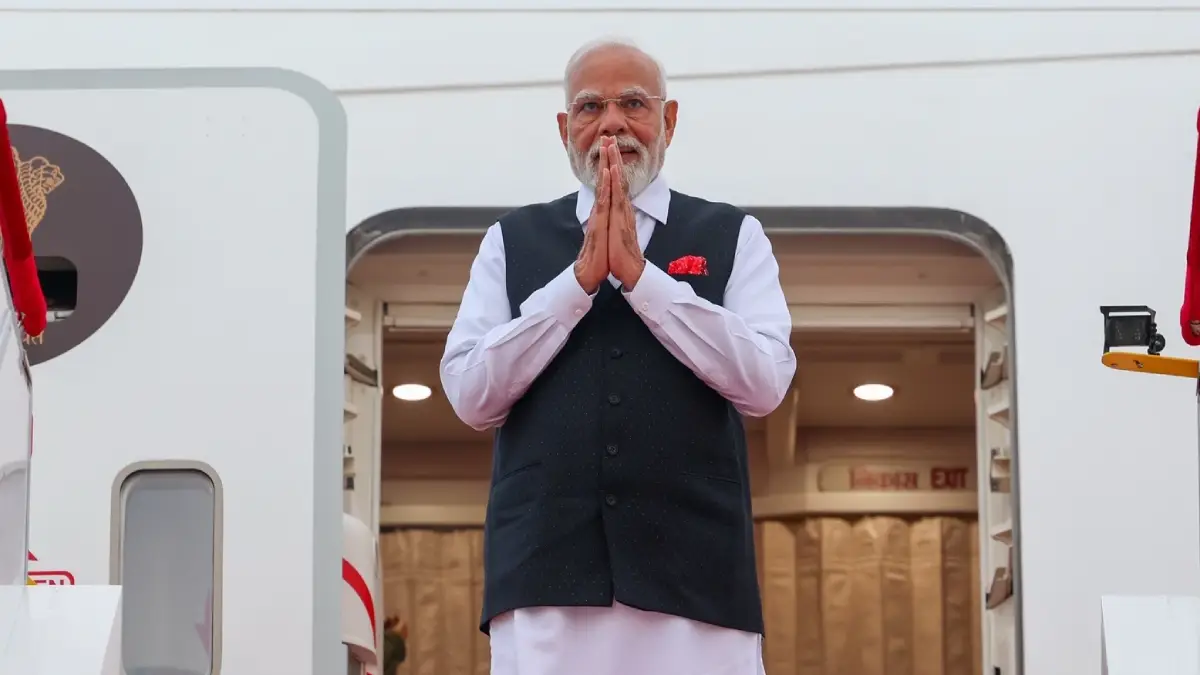New Delhi : Prime Minister Narendra Modi arrived in China on Saturday for a two-day visit to attend the Shanghai Cooperation Organisation (SCO) summit in Tianjin, marking his first trip to the country in seven years. PM Modi is set to join leaders from the 10-member SCO bloc for the annual summit on August 31 and September 1. His bilateral meeting with Chinese President Xi Jinping on Sunday is also expected to be closely watched, given the recent thaw in India-China ties.
Apart from this, PM Modi will also hold talks with Russian President Vladimir Putin on September 1. The visit comes against a backdrop of friction with Washington, after the Trump administration imposed steep tariffs on Indian exports, with additional tariffs imposed due to the purchase of Russian oil. While ties with the US remain strategically important, New Delhi sees value in keeping channels with Beijing open to diversify its options.
A day earlier, PM Modi, who was in Japan, said, “Given the current volatility in the world economy, it is also important for India and China, as two major economies, to work together to bring stability to the world economic order.” PM Modi said that “stable, predictable, and amicable bilateral relations” between India and China can have a positive impact on regional and global peace and prosperity.
PM Modi’s visit marks a potential reset in Sino-Indian ties that have been marked by both cooperation and confrontation. Relations plunged to a low after the deadly 2020 Galwan Valley clashes, but recent diplomatic exchanges signal a cautious attempt at rebuilding trust. Despite political frictions, China remains India’s second-largest trading partner, and New Delhi’s manufacturing ambitions continue to rely on Chinese components and raw materials.
The SCO summit itself is being watched for its broader implications. Originally set up to combat terrorism, separatism and extremism, the 10-member bloc has grown into a forum projecting an alternative to Western-led institutions. For India, participation underscores its intent to remain relevant across multiple platforms without leaning too heavily on any single alliance.
Still, expectations remain tempered. Long-standing suspicions persist, from China’s close military ties with Pakistan to its expanding footprint in the Indian Ocean. For China, improving relations with India could dilute US-led containment efforts. For India, balancing partnerships with both the West and Beijing demonstrates its commitment to multi-alignment in an increasingly polarised world.
Read Also : Trump’s 50% Tariffs on India Tied to Mediation Rejection, Jefferies Report Claims
